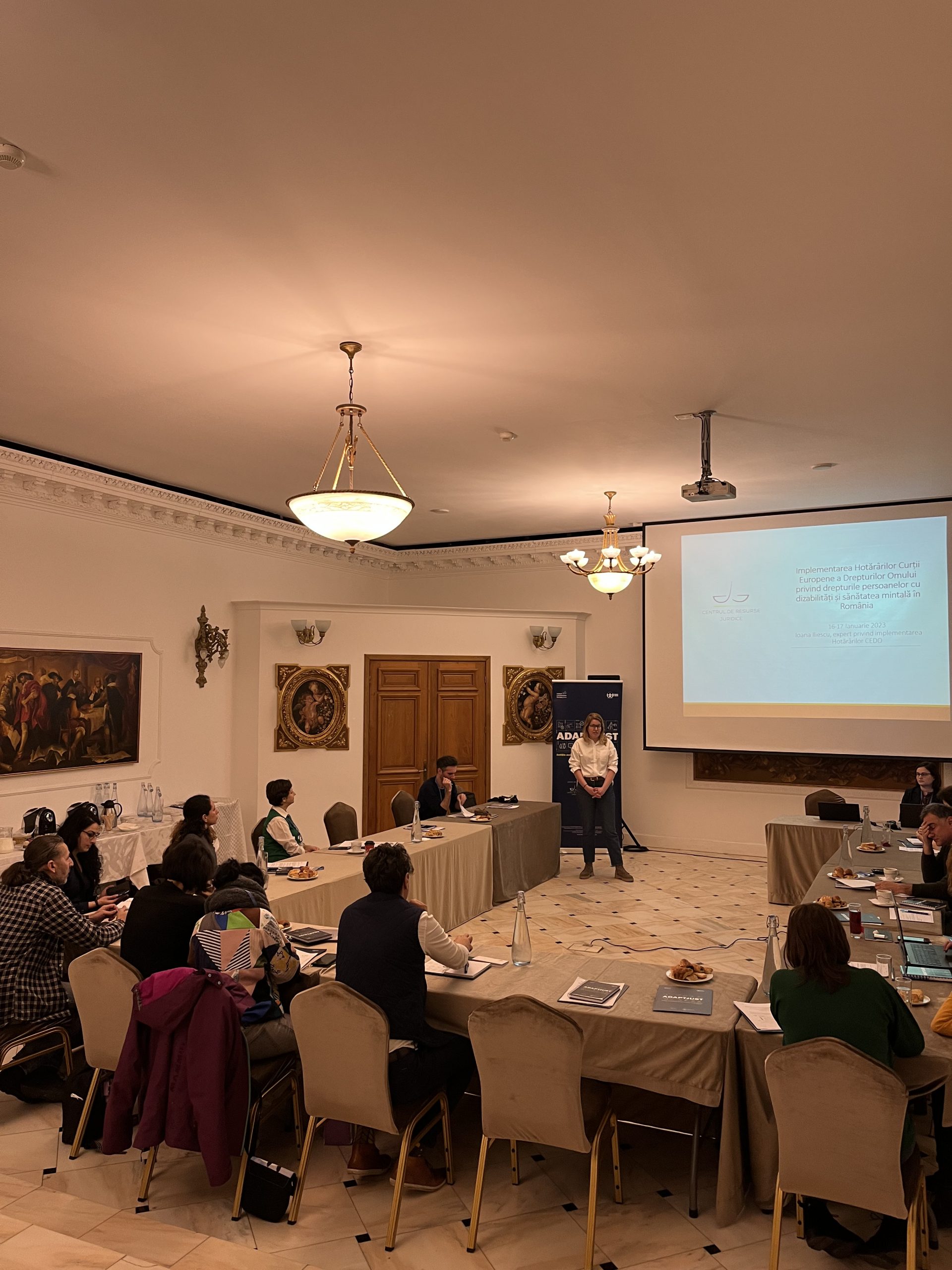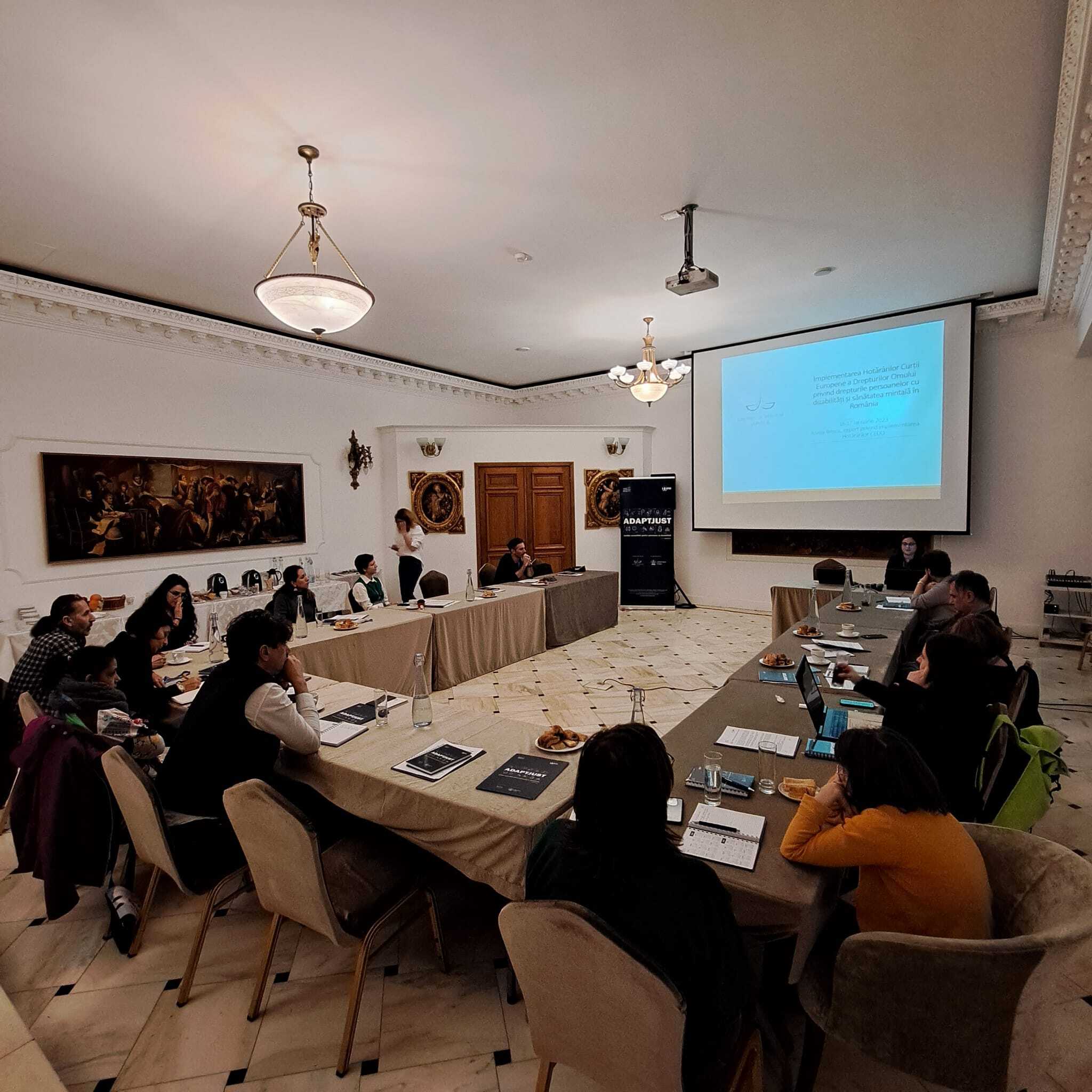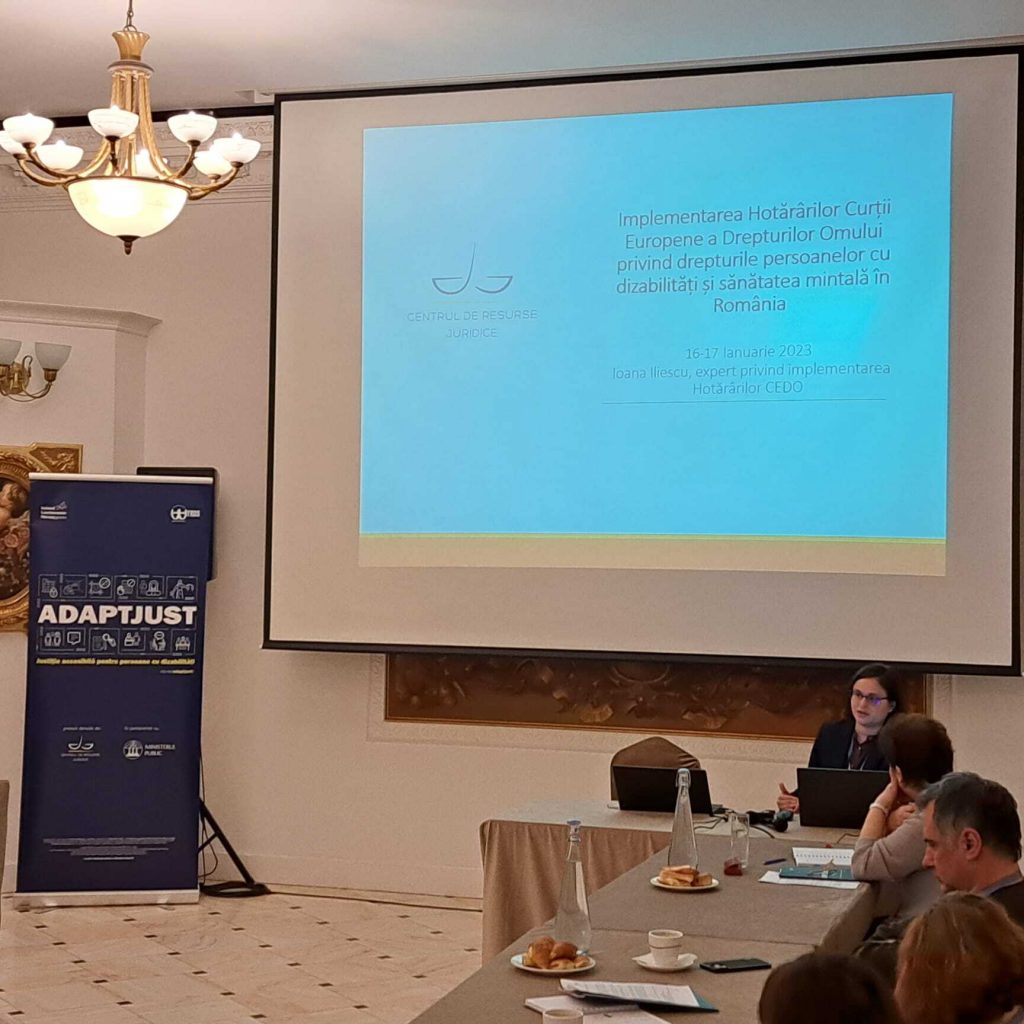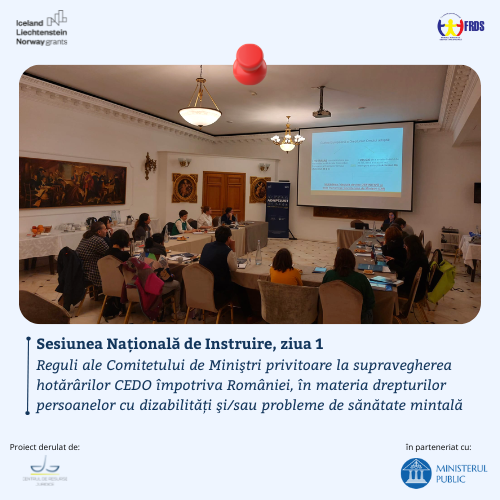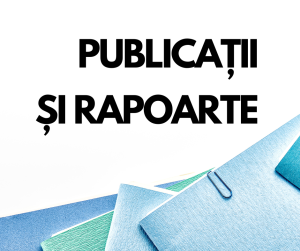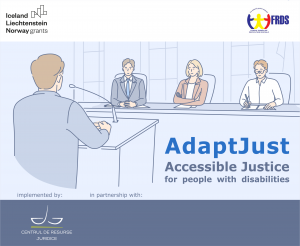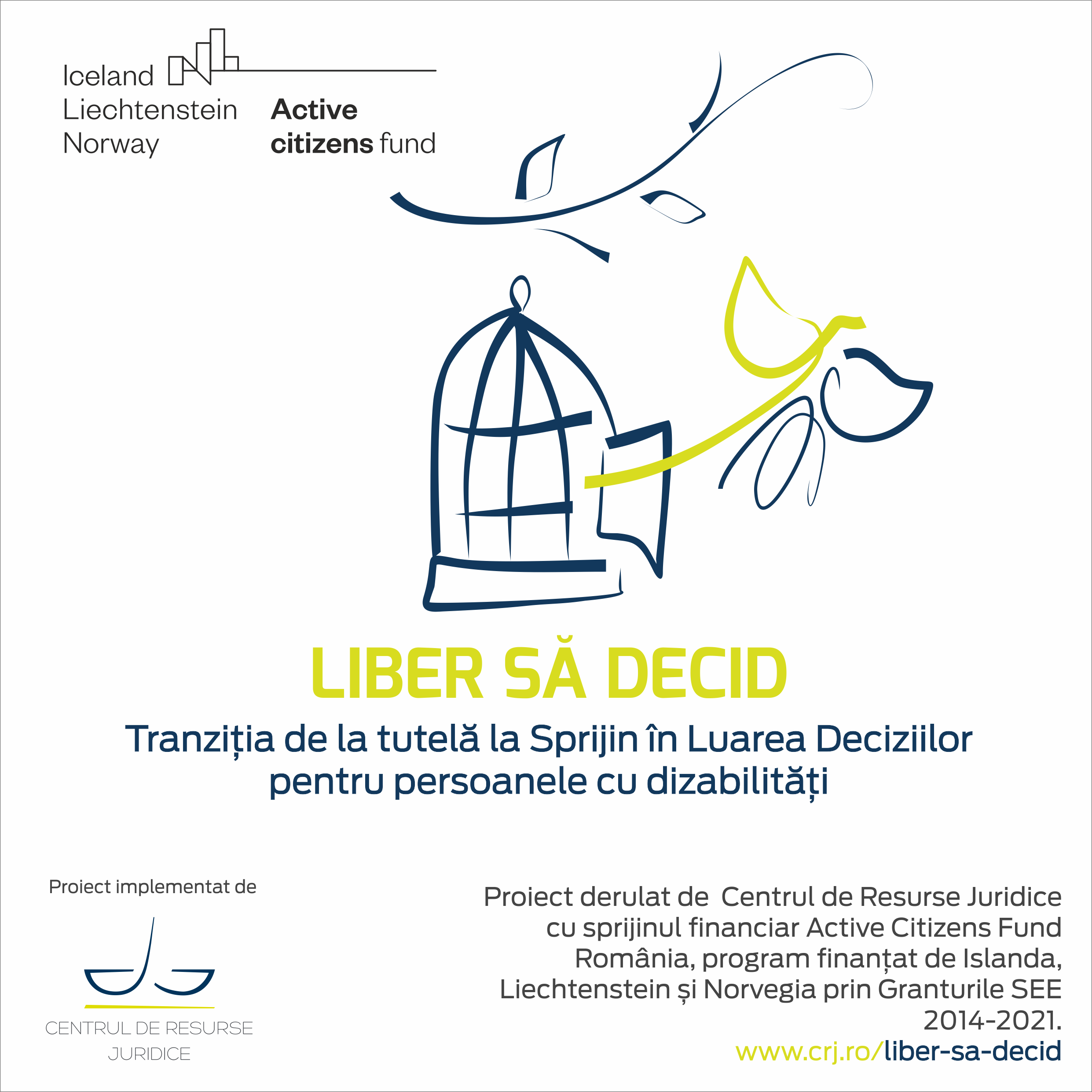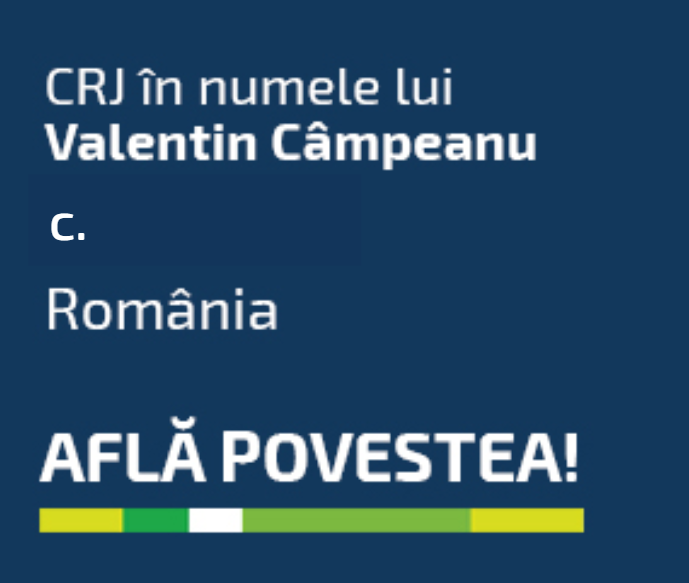Romania is condemned by ECHR judges for violating the rights of people with intellectual and psychosocial disabilities, especially in the areas of access to health services, dignified life in the community, access to justice, arbitrary deprivation of liberty, inhuman and degrading conditions of treatment, family life and child rearing and care. In order to respond to this need, the Legal Resource Centre organised a training course for staff of non-governmental organisations, persons with disabilities and their families to familiarise them with reporting to the Committee of Ministers.
The course was given by Ioana Iliescu, a human rights lawyer and expert in the implementation of European Court of Human Rights judgments, and Georgiana Pascu, project coordinator at the Center of Legal Resources.
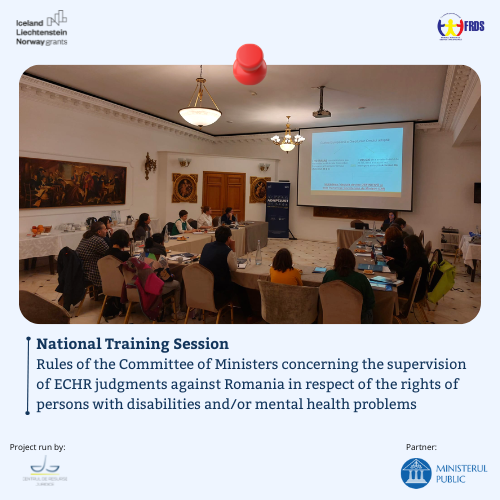
How do we use reporting to the Committee of Ministers of the Council of Europe to force the Romanian state to respect the rights of children and adults with disabilities?
This was the question that started the training session. There was a general discussion on the ECHR judgments in the national and international context, with participants raising various issues, especially related to accessibility and ways to complain: accessibility of complaints, their mandatory structure.
Participant: Where do we start?
Initially, one resorts to exhausting all internal modes of appeal and redress.
The internal modes of appeal and redress were presented, but also how their decisions can be used for subsequent complaints. Participants came up with concrete questions from cases they encounter on a daily basis: either personal cases or procedures, followed by a dialogue on common themes.
The whole complaints process was then discussed at length, with a focus on the distinction between Rule 9.1 (individual measures) and 9.2 (general measures), but also on the implementation of ECHR judgments.
Access to justice – the vicious circle of guardianship
Access to justice remains a challenge for people placed under guardianship or currently in institutions. When you have no tools to complain, or when they exist only in theory, the rights of people with intellectual and/or psychosocial disabilities are as good as denied. The difference between the complaints system in prisons vs. in psychiatric centres and hospitals was pointed out in the same discussion.
The participants examined possible situations in which, through joint forces, the ECHR could be reached. Two cases were highlighted by the participant, both with a common root: general anaesthesia at the state dentist. Possible external ways of solving the problem were discussed, once attempts at national level had failed:
They don’t do treatments under general anaesthesia, so they are denied their right to health. Bills in the private sector reached 12 000 lei.
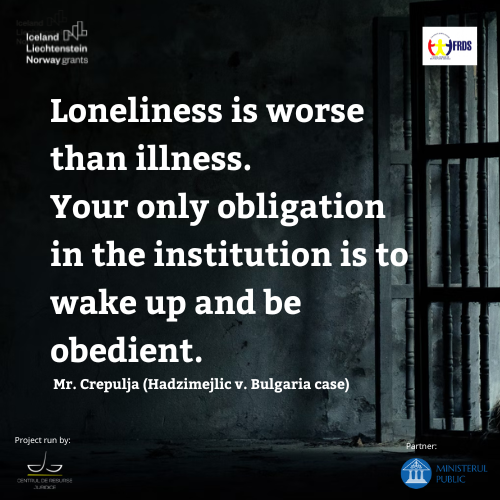
Key tools
The topic that concluded the discussion was “How NGOs can be involved in the process of implementing ECHR judgments and what are the best practices for Rule 9 Communications“. Several ECHR decisions concerning the situation in Romania and the process were discussed and, towards the end of the first day, the trainer shared with the participants a number of key tools such as:
- Hudog databases
- Ministers’ decisions as an advocacy tool
- strengths and weaknesses in writing a complaint: Legal studies are not required in drafting complaints. On the contrary, colloquial, plain-spoken writing conveys a cause more easily.
- drafting templates, procedural recommendations
- advocacy tools at national level (e.g. investigative journalism) – international examples with positive results
- other cases and how action was taken
Common denominator – rights of people with intellectual and/or psychosocial disabilities
The second day started with a short recap, together with a question session on the previous discussions. The session ended with a panel discussion, results and conclusions: Addressing Rule 9 communications in Pending ECHR Judgments.
